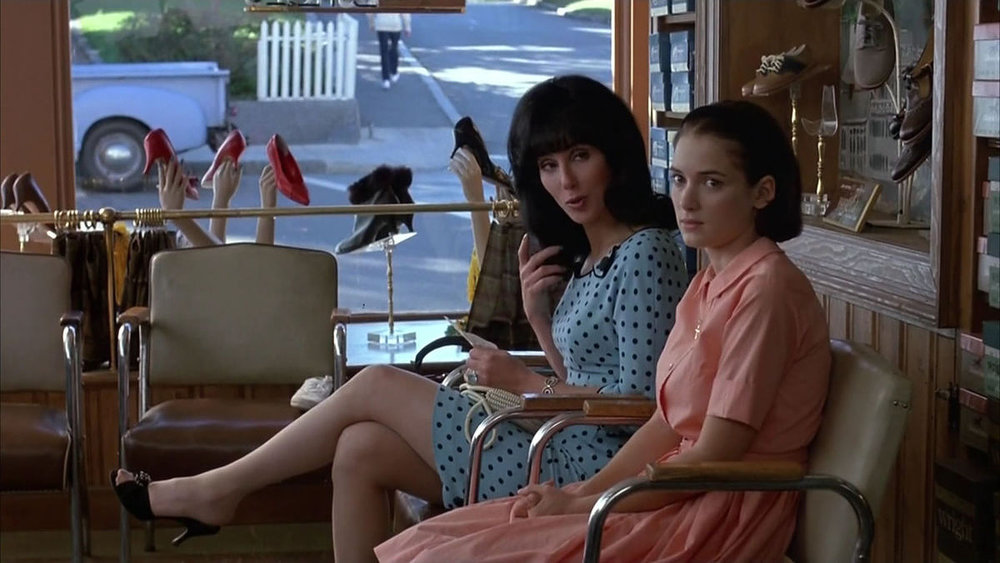
Sliding Scales
In the late 1980s, pop culture anointed Winona Ryder to be the omniscient, angst-ridden voice of a movie generation. Between narrating Edward Scissorhands’ bookend bed-time story; Heathers’ journal-reading snark; and Mermaids’ tumble down Memory Lane, the actress’ sweet, wobbly delivery invited audiences into her characters’ confidence; her wide outsider’s eyes evoked the eternal teenage conflict between pre-adult hesitancy and the brazenness of unchecked youth. By playing it straight in worlds dominated by wildly askew main characters, Ryder grounded these films’ truly out-there critiques of reality.
The trouble with Richard Benjamin’s Mermaids (based on the novel by Patty Dann) is that Ryder plays 15-year-old Charlotte Flax with the same quirky gusto that Cher puts into the role of her mother, Rachel. The Flaxes (including youngest daughter Kate, played by Christina Ricci) change cities and states with alarming regularity, thanks to mom’s near-clinical fear of commitment to men, to jobs, to setting down roots. Progressive stuff for 1963, and the latter part of the film zeroes in on Charlotte’s expressions of rebellion, which include smoking, talking back, and sleeping with a local handyman (Michael Schoeffling) nine years her senior.
These acts break the bonds of repressive Catholic guilt that have at once weighed Charlotte down for much of her life, and offered her a constant source of discipline and ritual in a household where both are dirty words (ironically, Rachel is a non-practicing Jew). Unfortunately, Ryder’s narration in the first half plays like cartoon thought balloons, turning "unclean" impulses into ham-handed jokes in scenes that often follow Cher’s character having done something equally off-the-wall. Throw in Bob Hoskins’ jitterbugging eyebrows (they’re attached to the semi-character with whom Rachel becomes briefly infatuated), and you have a calamitous overdose of “comedy” that leaves reality so far behind that entire stretches of story cease to mean anything.
Not surprisingly, the film’s shift toward a more adult tone coincides with the death of John F. Kennedy. As the world faces a dark new reality, so, too, do the Flaxes learn that if they’re going to survive as a family, they need to at least confront the void at which they constantly hurl barrels of sarcastic avoidance. Even then, it takes a near-drowning incident involving Kate to bring matters into focus; I was relieved that screenwriter June Roberts (and, by extension, I assume, Patty Dann) don’t try to “fix” the Flaxes by having them suddenly understand the benefits of conformity. They’re still oddball creatures deserving of their own travelling ecosystem, but they adopt just enough of the outside world’s social norms to be considered more than dysfunctional.
This is a nice little arc, on paper. But the reality of watching Mermaids is not so rewarding. The movie feels like a betrayal of Ryder’s gifts, relegating a master empath to sideshow-attraction status and pulling something akin to an identity switch in the second half.

